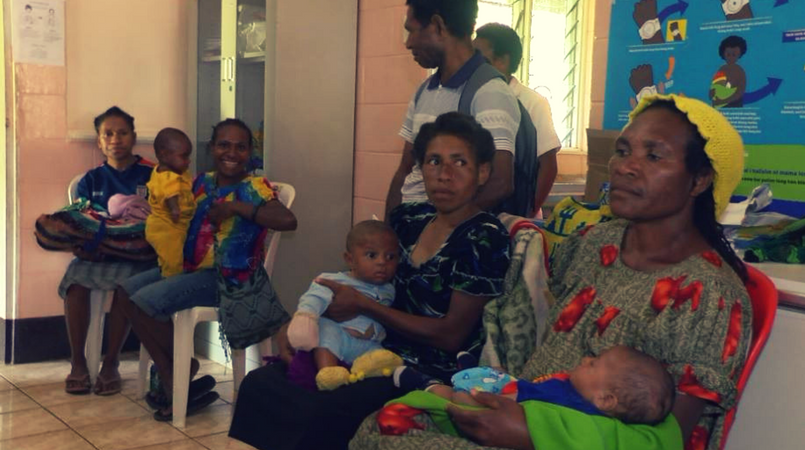
While infant mortality statistics in the last twenty-five years has seen a substantial reduction, neonatal mortality statistics remain stagnant.
UNICEF health specialist, Dr Ghanashyam Sethy, says this is because there are no specific programs or intervention for reduction of these deaths.
Neonatals are newborn babies under one month old; a very vulnerable group.
For PNG fortunately, with a $25m funding from Department of Foreign Affairs and Trade, the government introduced the Early Essential Newborn Care (EENC) in 2015.
EENC rolled out by UNICEF now covers almost 95 percent of health facilities in 11 provinces.
Under EENC comes initiatives of the Bebi Kol Kilok, a hypothermic bracelet which constantly monitors the newborn’s body temperature, and introducing village birth attendants.
This program also triggered many behavioural change like the use of Kangaroo Mother Care (KMC) and breastfeeding practice.
The National Department of Health has decided to scale this program across PNG, but this will cost about K16 million (US$5.6m) over the period of 3 years.
Nevertheless, Dr Sethy says this newborn care package should be rolled out as it also impacts other programs such as family planning and baby immunisation.
Every year in Papua New Guinea, 6,000 newborns die.
But Dr Sethy says EENC intervention will reduce neonatal deaths by 41 percent. This means, around 2,800 babies will be saved by this simple intervention.
